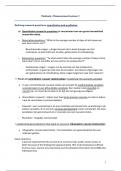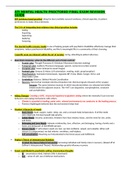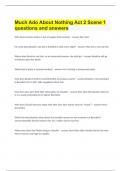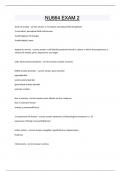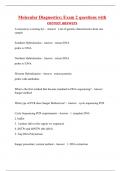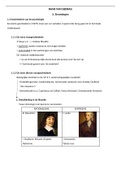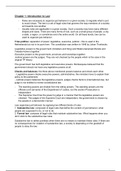Summary
Summary Methods, Measurement & Statistics (HRS Premaster UVT)
- Course
- Institution
- Book
This summary contains all the material from the 7 lectures and the content of the chapters that belong to them from the book 'Social Research Approaches and Fundamentals' written by Straits, B. (2018). This summary contains all the important things from the Methods section that you need for the exa...
[Show more]
